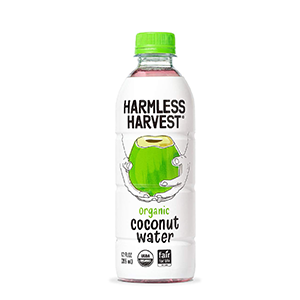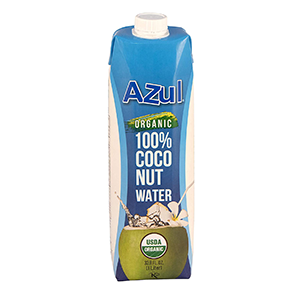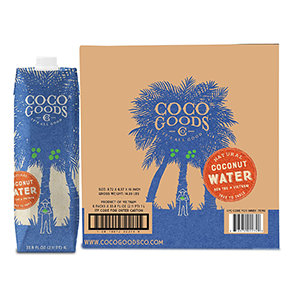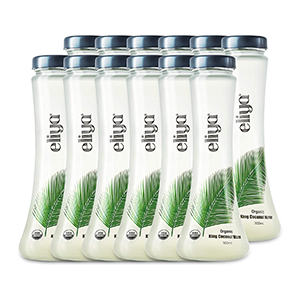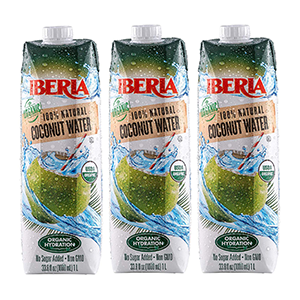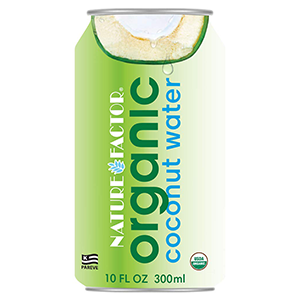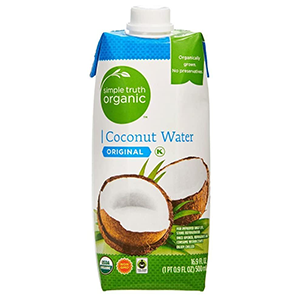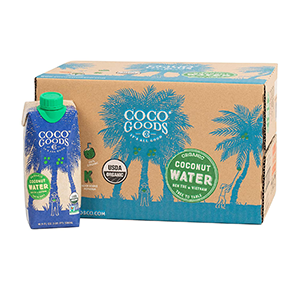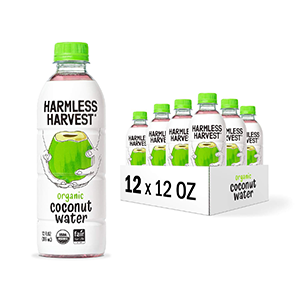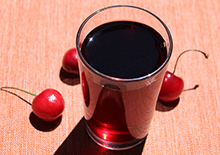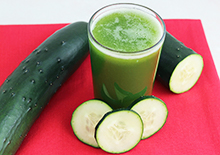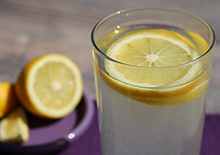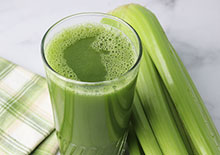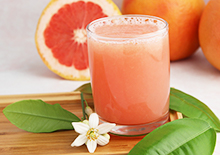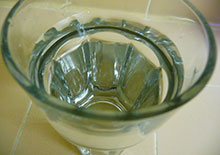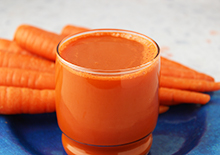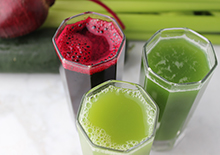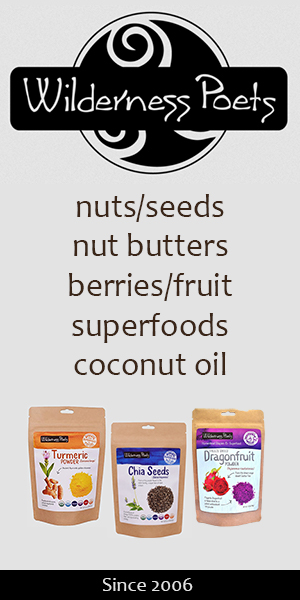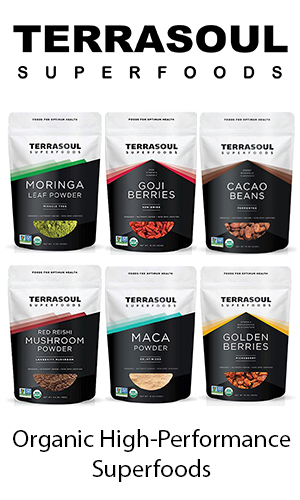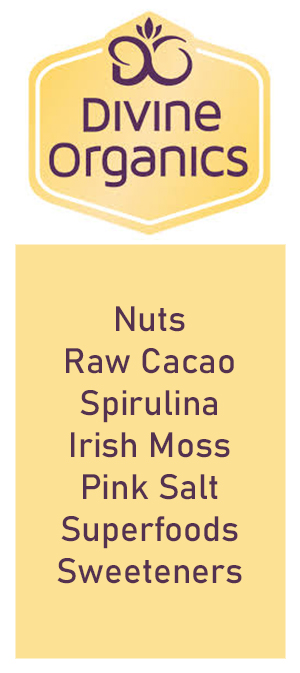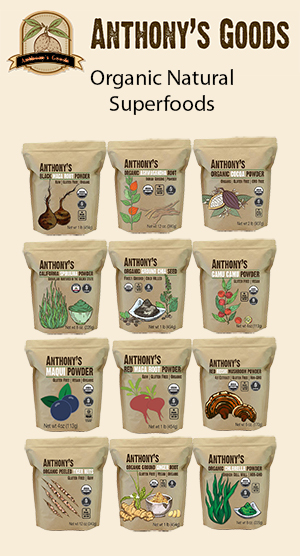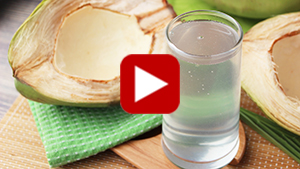- Home
- Super Juicing
- Benefits of Coconut Water
Benefits of Coconut Water, Should You Drink It?
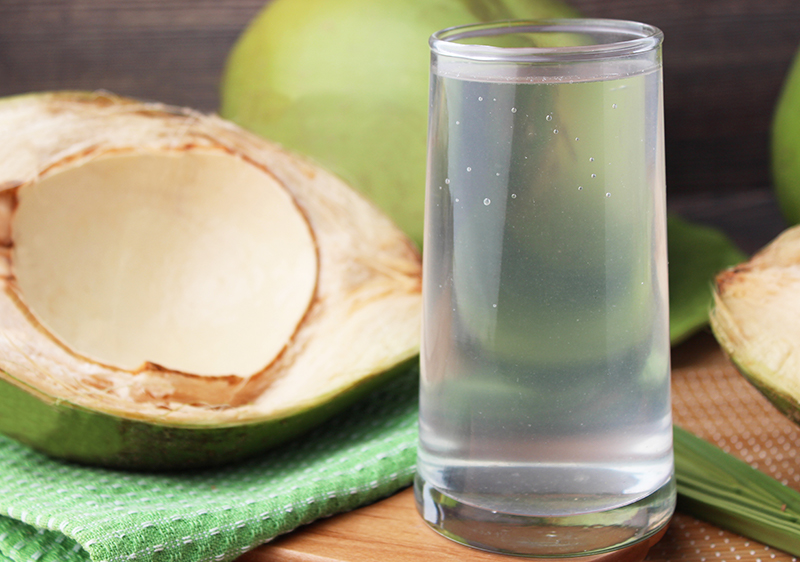
Coconut water is the juice produced from immature young green coconuts of the tropical Cocos nucifera coconut palm species. Typically harvested fresh from the tree when 5-7 months old, this is the ideal time frame that the clear slightly cloudy water is most abundant as well as when it’s the sweetest and most nutritive.
The official scientific term for this water is "coconut liquid endosperm" because most of it will eventually nourish and develop the white coconut flesh.
Therefore, as the coconut ripens the water content is reduced and becomes less palatable.
Table of Contents
Coconut water is not the same thing as coconut milk. Coconut milk is made by pressing the mature fatty coconut flesh and squeezing out the milk.
The type of coconuts used for commercial coconut water products can vary in taste depending on the region they are grown in and the cultivar utilized.
In tropical locations, where the fresh juice is widely available, it is common to find street vendors who will chop open a fresh green coconut for sale as an instant refreshing drink.
However, in other parts of the world, the liquid is packaged for distribution and has only in the past several decades become a trendy export product.
Here's a summary list of four things coconut water might be good for.
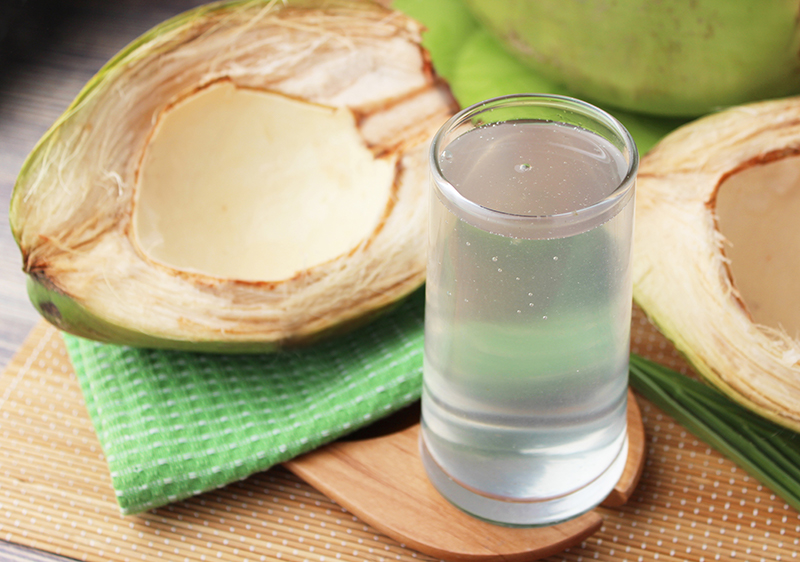
4 Simple Truths About the Benefits of Coconut Water
1) ELECTROLYTES
2) HYDRATION
3) CYTOKININS
4) ENZYMES
1) ELECTROLYTES
Coconut water sold commercially is often glamorized by marketers as "nature's sports drink" because of its electrolyte content.
Electrolytes are electrically charged compounds and minerals that are vital to bodily processes like muscle contractions and energy production, actions especially essential for intensive sports activities or prolonged exercise.
The main five types of coconut water ELECTROLYTES are potassium, magnesium, calcium, phosphorus and sodium.
Replenishing electrolytes can help to decrease fatigue, reduce muscle cramping and simply make workouts easier.
POTASSIUM is the top electrolyte found in coconut water with a one cup or 8-ounce glass containing about 15% of the Daily Value for potassium (based on an adult 2,000 calorie diet).
Again, electrolytes get depleted with physical exertion and drinks that contain them are claimed to replace those lost through perspiration.
The best type of coconut water for such purposes is made from pure juice straight from the fresh coconut without any added sweeteners, fruit juice, preservatives or colors.
This variety is often considered a prime choice compared to sports drinks that can be loaded with sugar, synthetic vitamins and artificial ingredients.
Coconut water also contains a small amount of B vitamins and natural sugar content which can directly influence brain function as well as energy levels needed for peak athletic performance.
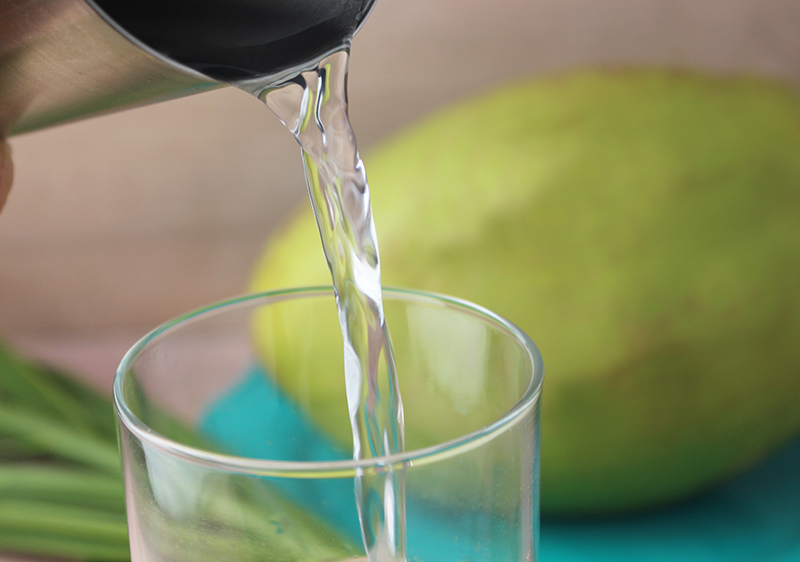
2) HYDRATION
Being 95% water, one obvious benefit of drinking coconut water is
that it is very hydrating. This aspect goes side by side with its fluid
balancing electrolyte nutrients and diuretic properties.
While
filtered pure water should be the primary source of daily hydration,
coconut water with its subtly sweet coconutty flavor can also provide a
refreshing alternative.
In early research, it was concluded that consuming fresh coconut water could be useful for "whole body rehydration after exercise."
Coconut water is energetically COOLING to the body and can be a great thirst-quenching option to consider when the body may be feeling overheated. In some inconclusive research on rats, coconut water was found to have a potential anti-inflammatory influence. (*)
It has become a hydrating top mainstream everyday juice for its taste alone in addition to a healthful substitute for high-calorie energy drinks and sodas. Likewise, 100% pure coconut juice might be a better drink for those looking to lose excess body weight.
One cup or 8 ounces of coconut water, according to nutrition data, contains an average of 46 calories and 8.9 grams of carbohydrates.
3) CYTOKININS
One lesser-known yet noteworthy element of the benefits of coconut water is that it is a source of CYTOKININS, mainly trans-zeatin riboside. Cytokinins, not to be confused with "cytokines", are a class of phytohormones studied for their health-enhancing potentials.
In the plant world, they are a group of naturally occurring compounds that are important for mediating growth as is the case with the stages of coconut endosperm development.
Cytokinin concentration in coconut water was shown to vary according to the species with the highest levels identified in immature coconut water compared to the mature stage of coconut development. Again, trans-zeatin riboside was the major cytokinin compound present. (Source)
Although more research is needed on coconut water and its cytokinin benefits, these substances may offer useful nutrients to humans and ones to keep an eye out for in future studies on coconut water.
4) ENZYMES
Coconut water direct from the coconut is usually a sterile solution
and full of naturally occurring beneficial enzymes. However, most 100%
pure coconut water, even quality organic products we investigated, were
flash pasteurized which destroys enzyme content.
Since it's not required by manufacturers to say whether products are indeed pasteurized, most opt-out as it's not necessarily a selling point. A few suppliers are now using a non-heat treatment method to remove impurities, like cold-water high-pressure processing (or HPP), which retains greater natural enzymes.
Commercial coconut water kefir is also available as an enzyme active and probiotic-rich health drink option. You can also make homemade kefir from commercial coconut water or from the water extracted from fresh young coconuts.
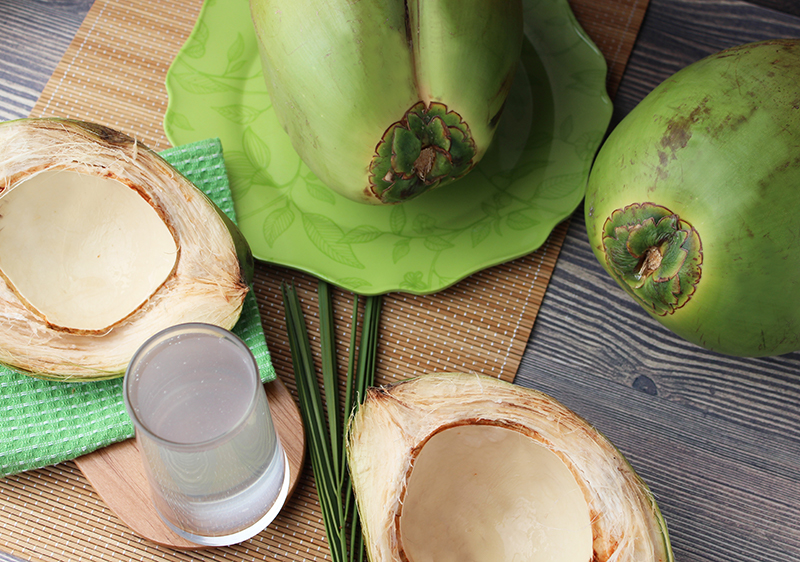
Best Coconut Water
The best coconut water is cracked fresh from the young green coconut. While green varieties aren't typically available outside of tropical locations, smaller variations like young Thai coconuts are widely available. They make a suitable option if you're looking for a comparably sweet coconut juice.
For the highest health benefits of coconut water, we recommend selecting 100% pure coconut water (not from concentrate) with no other added ingredients. That means products free of added sweeteners, artificial flavors, colors or preservatives.
We also highly advocate choosing organic, non-GMO and fair-trade coconut products that are packaged in recycled containers.
Common Types of Coconut Water
- Plain
- With Coconut Meat Pieces
- With Fruit Juice or Puree
- Coconut Water Drink Mix
Depending on your dietary needs, you may also prefer coconut water with added fruit juice, fruit puree or coconut meat pieces. As of 2020, coconut water is also commonly available as a powdered drink mix that can be stirred into water.
Coconut water can be used when making blended drinks or mocktails and can be fermented to make kefir and vinegar.
Precautions:
It is best to avoid drinking excessive amounts of coconut water throughout the day which can lead to hyperkalemia or too much potassium in the blood. Consult your nutritionist or dietitian before adding coconut water to the diet if you are pregnant, nursing, have a serious medical condition or are taking any prescribed medications.
Shop Related Products (About Affiliates & Amazon Associate Paid Links)
Affiliate Disclaimer: This section contains affiliate product links. If you make a purchase through our recommended links, we receive a small commission at no additional cost to you. Thanks for the support.
